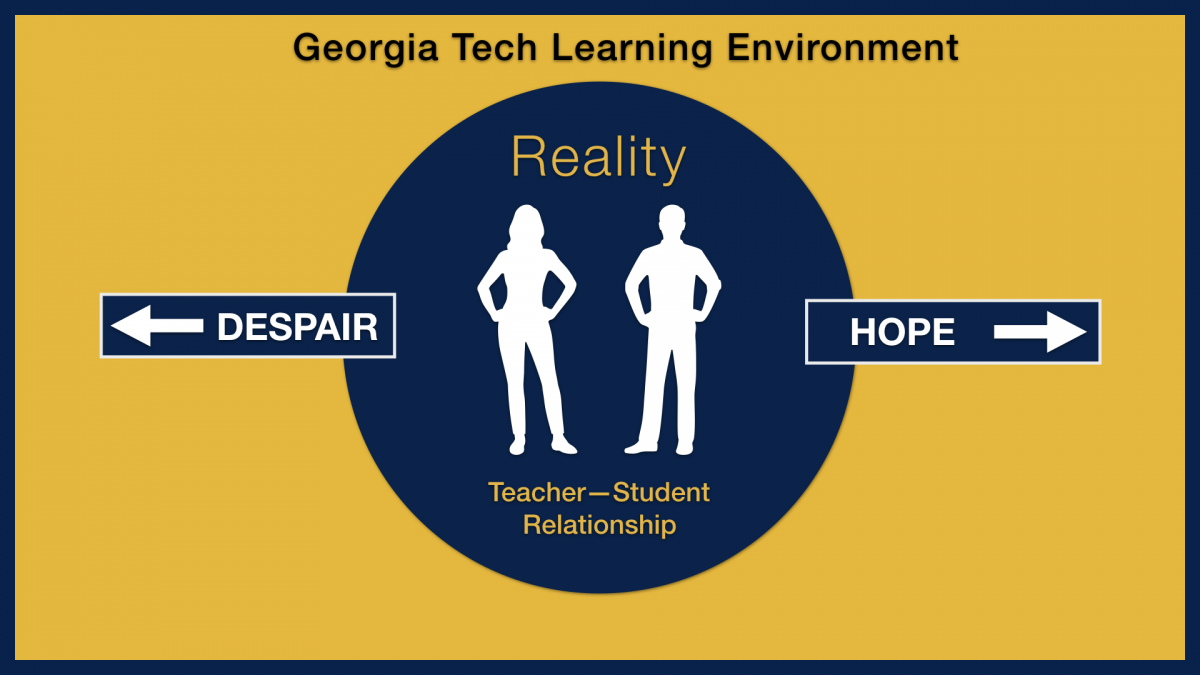
As stress levels rise, our ability to be the best versions of ourselves tends to drop. For students, this can lead to decreased academic performance, increased anxiety, and even mental or physical breakdown. This, in turn, can lead to encounters with students who are in distress, and it is important that we know how to respond.
What Can I Do?
In all cases, aim to treat your students with respect — regardless of the nature of your interaction with them. This can mean the difference for your student between long-term success and failure, and can even help your student find their way through difficult situations.
When addressing students who are (or who you expect to be) in distress, consider the following recommended approaches:
- Set up a private meeting with the student. Today’s students appreciate and benefit from face time or live conversations with supportive listeners. In-person meetings can help everyone interpret emotions, voice tones, and facial expressions to better understand a difficult situation. In addition, meeting privately with a student will help to minimize potential embarrassment or defensiveness. In today’s world of impersonal electronic communication, students will appreciate that you took time to meet with them individually and to listen.
- Use verbal and nonverbal communication to show respect and concern for the student. Generation Z students respond well to transparency, honesty, and authenticity when confronting a problem. Demonstrate respect and concern by empowering the student as an active problem-solver.
More specifically, instructors have found the following verbal and nonverbal communication cues helpful when communicating with distressed students:
- Remain calm, rational, and professional. How you respond will directly affect the student, so aim to avoid overreacting.
- Be empathic. Try not to convey judgment of a student’s feelings.
- Clarify messages. Listen to what is being said, ask reflective questions, and re-state what you have heard from the student.
- Permit verbal venting. Give the student an opportunity to express their frustrations and/or other negative feelings before trying to identify solutions.
- Set and enforce reasonable limits. If the student becomes belligerent, set limits clearly and concisely. Invite them to take some time to gather their thoughts before continuing the conversation.
- Ignore direct challenges to your authority. When the student challenges you, redirect their attention to the issue at hand.
- Respect personal space. Stand at least 1.5 to 3 feet from the disruptive student. Encroaching on personal space tends to arouse people and escalate the situation.
- Be aware of body position. Standing eye-to-eye, toe-to-toe with the student sends a challenging message. Standing one leg’s length away and at an angle off to the side is less likely to upset the student.
| Remember to avoid making promises to keep shared information confidential. |
| If the student appears to be in imminent danger of hurting self or others, contact the counseling center or the campus police immediately. Do not promise to keep threats to self or others secret. |
For more tips for helping distressed students, including information about connecting students with our campus counseling center, see this list from Georgia Tech’s Counseling Center.
References
- Cabello, R.G. (2001). Have a plan to calm disruptive students and implement it when needed. In C. McCarthy (Ed.) 40 practical ways to address student conduct. Horsham, PA: LRP Publications.
- Harrell, I. L., & Hollins, T. N. (2009). Working with disruptive students. Inquiry, 14(1), 69-75. Retrieved from https://eric.ed.gov/?id=EJ833920.
- Seemiller, Cory & Grace, Meghan (2016). Generation Z Goes to College. San Francisco: Jossey-Bass.
RELATED CTL RESOURCES
- Counseling Center
- Crisis Line: 404.894.2575 (M-F 8 a.m. - 5 p.m.)
- After-hours counselors: 404.894.2204
- Dean of Students and Student Life (404.894.2565)
- Referral messages (if concerned about a student's academic performance, classroom behavior, or well-being)
- Student Temporary Assistance and Resources (STAR) (for services like the food pantry, emergency funds, and temporary housing)
- Georgia Tech Police Department (404.894.2500)
- LGBTQIA Resource Center
- Office of Institute Diversity
- Veterans Resource Center
- Women’s Resource Center